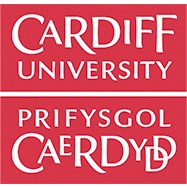A year of breakthrough research
22 December 2020
Russell Group universities make breakthroughs throughout 2020
Russell Group universities have been carrying out ground-breaking research throughout the year, collaborating with each other, Government, business and international partners to help keep the UK as a world leader in science. Our members have been at the forefront of the fight against the pandemic, with innovations in vaccines and testing, treatments and public health, as well as supporting the NHS with equipment and expertise. But it’s not just the fight against Covid they have led on. Research continues to make a difference on numerous fronts, changing lives for the better. Read our twelve examples of breakthrough research that is having a positive impact on the world this year, including on Covid-19 and beyond:
- Researchers at the University of Bristol and Imperial College London working alongside Government and hospitals discovered that singing is no more risky than talking when it comes to spreading Covid-19. The results are important in keeping our arts and culture alive and improving our understanding of the virus.
- The effects of lockdown on air pollution levels have been studied by researchers at the University of York, who observed a substantial decline in the chemicals that are most harmful to human health.
- Analysis from researchers at the University of Leeds which showed more than 1.3 billion tonnes of plastic is set to be dumped on land and in watercourses by 2040 is helping make the case for urgent global action to reduce pollution. Separately, researchers at the university also found that watching videos and images of cute animals can help reduce stress levels by up to 50%.
- A potential breakthrough on treatment for Tourette Syndrome is on trial at the University of Nottingham. The treatment, which involves electrical stimulation to the wrists, can help quieten the involuntary tics that make life difficult for those with the condition.
- Researchers at the University of Birmingham are working with the UK Environment Agency to help look at chemicals used in pesticides that could affect our biodiversity, having found that, even at approved levels, some can cause harm to animals at the heart of our ecosystems.
- Researchers from Imperial College London, working with the University of Surrey and the University of Zurich, are helping tackle hard to treat infections by creating a new type of bacteria that can outcompete strains resistant to common antibiotics. The research builds on findings that many illnesses are not the result of a single strain of bacteria, but emerge as several different strains compete within the body. By introducing a dominant strain that can easily be treated with antibiotics, infections can be cured quickly. The potential to tackle treatment-resistant infections is an important development for global health.
- An MSc student at Queen’s University Belfast is helping people keep their pets fit and well by developing a cat litter tray that can diagnose feline health problems as part of her dissertation.
- Durham University is playing a leading role in the UK National Grid’s new £12.7m offline hydrogen research facility, which could see hydrogen become the future heat source for homes and provide green energy to industry.
- University of Southampton researchers developed new, reusable PPE in the form of a protective respirator(PeRSo) for healthcare staff tackling Covid-19 on the frontline. Engineers from the University of Southampton worked with clinicians at University Hospital Southampton and industry partners including McLaren to develop and manufacture a prototype respirator within one week. PeRSo was tested on wards and manufactured at scale within a month, and now has HSE approval for use across the NHS.
- Breathing aids developed by engineers at UCL and Mercedes-AMG High-Performance Powertrains working with clinicians at UCLH have been delivered to 46 NHS hospitals across the country. The UCL-Ventura breathing aid, a low-flow Continuous Positive Airway Pressure (CPAP) device, is used in hospitals across the UK. CPAP devices were used extensively in China and Italy to help Covid-19 patients breathe more easily, but the devices were in short supply in UK hospitals, so engineers at UCL and Mercedes-AMG HPP worked round-the-clock to reverse engineer a device that could be manufactured rapidly by the thousands.
- Researchers at LSE have developed ways to protect victims of domestic violence using artificial intelligence to predict when repeat incidents might take place. Their methods have been shown to be more efficient than the questionnaires currently used by police. The research can help allocate resource, assist the police, and relieve suffering in society.
- The University of Oxford’s Jenner Institute and Oxford Vaccine Group have been at the forefront of scientific endeavour to develop vaccines for diseases of major global importance. This work has been going on for more than thirty years and the Oxford Vaccine Hub has the latest news of how research is helping to tackle Covid-19 not just in the UK, but all over the world through clinical trials and manufacturing agreements, with efficacy across different age groups.
Research across arts and science, across borders, and across societal challenges from Covid-19 to climate change is helping to build a brighter future for our country and people across the world. Russell Group universities are at the forefront of these important collaborations and studies - boosting the UK’s standing as a scientific leader. Continued, long-term investment in long-term research and innovation in the New Year is crucial to maintaining that advantage. For more of the latest on how Russell Group universities continue to contribute to prosperity and health, follow @RussellGroup on Twitter.
-
Adam Clarke
adam.clarke@russellgroup.ac.uk
020 3816 1302
 X
X

